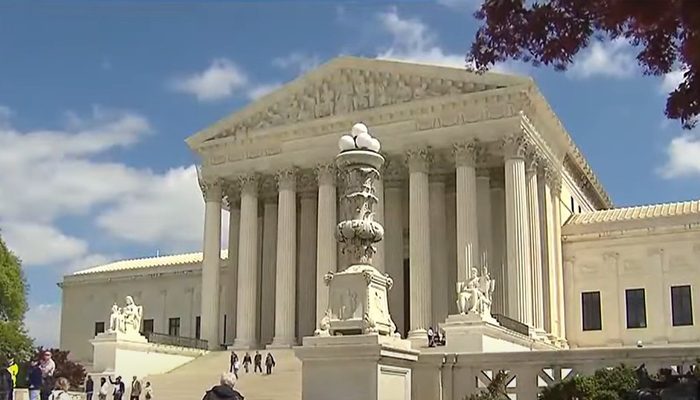Pull up a chair, folks. Did you know the Media Research Center (MRC) is calling out the federal government for alleged discrimination towards religious broadcasters and conservative talk radio? It’s this high-sea drama involving copyright licenses, hefty royalty fees, and the battle for free airtime as much as it is about the fight for freedom of speech and religious liberty. Let’s dive in.
MRC, equipped with a radiant sense of justice, stood up this week in the U.S. Supreme Court in favor of the Alliance Defending Freedom (ADF). The tension between religious broadcasters and the Biden-led Copyright Royalty Board (CRB) had been simmering for a while. It had come to a boiling point after the CRB, a federal entity regulating royalties and copyright licenses, seemingly turned a deaf ear to religious broadcasters’ grievances. The devil is indeed in the details.
According to MRC, the CRB gave a cold shoulder to these broadcasters’ First Amendment rights of religious liberty and free speech. Their alleged crime? They didn’t extend the same desirable deal they gave to National Public Radio (NPR) to religious broadcasters. And hold onto your hats because it gets pretty disconcerting from here.
The battle started heatedly in 2021, when the CRB wouldn’t give the NPR style reduced-cost deal to the National Religious Broadcasters Noncommercial Music License Committee (NRB), a non-profit organization flying the flag for numerous religious broadcasters and communicators. This decision left the broadcasters reeling.
The ADF argued earlier this year that the CRB had created a statutory license where companies, including NPR and the NRB, would need to pay royalties to the copyright holders for the songs aired. But the twist is, the CRB decided to play favorites.
In stark contrast to the sweetheart deal it gave NPR, the CRB demanded religious broadcasters to shell out 18 times more in royalty fees if they cater to an audience of over 200 listeners. This sprang a bias controversy, given that NPR is a taxpayer-funded organization of a secular nature that allegedly leans towards the political left.
Being treated like the underdog, the religious broadcasters went to court against the CRB last year. The outcome wasn’t what they hoped for, though. The D.C. Circuit Court of Appeals ruled in favor of the federal government. Note that the ADF emphasized this blatant discrimination that forces smaller noncommercial religious stations to restrain their listener reach to keep their streaming affordable.
Ever thought about reaching out to your representatives to address this issue? Your voice matters. You can demand that not just Big Tech but all aspects of broadcasting echo the spirit of the First Amendment, offering equal representation to all voices, including conservatives. Robust, clear guidelines on hate speech and equal opportunity are what we need. If you’ve been silenced, don’t hesitate to reach out via CensorTrack’s contact form. Helping us hold Big Tech accountable is a step towards a more democratic media landscape.



